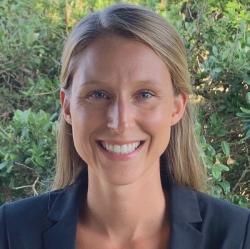
OR WAIT null SECS
Cholangiocarcinoma in Primary Sclerosing Cholangitis, with Sumera Ilyas, MBBS
Sumera Ilyas, MBBS, discussed cholangiocarcinoma in primary sclerosing cholangitis and the need for global efforts to improve access to more advanced diagnostic testing.
Sumera Ilyas, MBBS, assistant professor of immunology and medicine at the Mayo Clinic College of Medicine and Science, sat down with HCPLive to discuss key takeaways from her presentation about cholangiocarcinoma in primary sclerosing cholangitis (PSC), current unmet needs in these patients, and the importance of generalizing advances in the field to make sure they are available globally.
Ilyas was a speaker during the session “Advances in the Management of Primary Biliary Cholangitis (PBC), Primary Sclerosing Cholangitis (PSC) and Cholangiocarcinoma: A Global Perspective” at The Liver Meeting 2023 from the American Association for the Study of Liver Diseases (AASLD) in Boston this weekend, where she presented on cholangiocarcinoma in PSC.
Despite recent advances surrounding cholangiocarcinoma, many new treatment options improve survival for 2 to 3 months. Ilyas referenced this unmet need in cholangiocarcinoma and PSC, citing the importance of developing more effective treatment options for patients.
“I think the other big unmet need is diagnosing the disease at an earlier stage,” Ilyas continued. “The vast majority of patients with cholangiocarcinoma are diagnosed with advanced disease, so I think that there are a lot of efforts underway looking at different biomarkers and other testing modalities to see if we can catch the disease earlier and diagnose it earlier in PSC patients. These are the patients that we can try to target with emerging diagnostic modalities and see if we can identify the subset of PSC patients who will go on to develop cholangiocarcinoma.”
Even with the recent advances surrounding cholangiocarcinoma, Ilyas pointed out the importance of making them more widely available: “There's advances in a multitude of diseases, which is wonderful. I mean, this is what research efforts are geared toward. But I think one of the things that I really liked about this session was being mindful of endeavors and efforts to include all communities across the world.”
She went on to describe various discussions from the session, referencing conversations about efforts currently underway to improve access to sequencing efforts and give providers across the globe more options for their patients. Ilyas cited mindfulness about generalizing these advances and making them more widely available as the most important takeaway from the session.
Still, there’s room for improvement beyond just generalizing current advances. Ilyas called attention to the need for better diagnostic testing and more effective treatment options.
“Even though we've had these advances, they've improved survival only on the order of months, and so we have a long way to go,” she said.
Inlays also noted the rare nature of both PSC and cholangiocarcinoma means there isn’t as much familiarity with the management of either disease. Furthermore, access to the diagnostic tools needed to screen for them is limited and not available to all patients.
“That's one of the things that we highlighted - global efforts to improve access to more advanced diagnostic testing, like more advanced endoscopic techniques, and having workshops in places like Africa, to ensure that providers everywhere have the tools that they need to diagnose patients,” Ilyas said.


